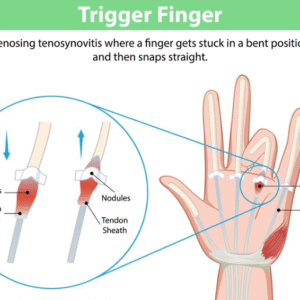Whilst forming a new habitual behaviour can be difficult, maintaining a new behaviour is the most difficult stage of the behaviour change model. Forming an ingrained habit requires an understanding of the psychology behind sustained behaviour change. It requires new practices and strategies beyond those which helped initiate the changed behavior or practices. Read on to find out more about why sustainability is vital in creating behaviour change, and how to maintain and uphold positive new habits.
Barriers to Sustainable Behaviour Change
In order to successfully implement a changed behaviour, individuals must be confident that the change is capable of being sustained. Individuals quickly lose motivation to adopt changes if they do not realistically believe they are capable of maintaining them. It is therefore essential to implement strategies at the initiation phase of a proposed behaviour change, that will better support the individual to adopt and maintain the proposed behaviour or practice in the future.
Researching, anticipating and addressing any problems an individual may encounter when implementing a new behaviour is vital in order for the change to be successful. Ensuring that the individual is well-informed of any potential issues they may encounter when adopting the new behaviour is essential in order to ensure that they proceed with the process.
For example, if an individual is informed that they will likely experience symptoms of withdrawal from the modified behaviour, they will not be surprised or motivated to stop the process if they begin to feel symptoms. Being informed and aware of what may happen throughout the process is essential for individuals to believe that they can be successful in adopting the change.
Set for Success
When attempting to influence the behaviours of others, it is essential to focus your efforts and strategy on practices that can easily be implemented into an individual’s natural environment and routine. If you are generating a campaign which focuses on implementing behaviour change in the general public or within a community, it is important to consider what steps, support and strategies will best prepare your campaign for success.
It is therefore important to structure your behaviour change campaign or program around natural and progressive steps that can easily be implemented into an existing lifestyle. It is also essential to provide the participant with some ability to measure their progress. Having the participant track their progress not only provides additional motivation, but the process of tracking helps the individual form a habit. Without this, individuals are unlikely to participate or be motivated enough to attempt to change. Without the behaviour becoming a habit, individuals are likely to quickly revert to their old ways.
Network Interventions
Understanding the strategies that best motivate changes in behaviour is essential when attempting to implement a sustained behaviour change on an individual or a larger population scale. Modern research has shown that behaviour interventions that are targeted at a person’s individual beliefs, are not as successful as interventions that highlight the beliefs and behaviours that have been adopted by other members of the community. In short, people are more inspired to replicate the behaviour of their peers.
However, these ‘peer to peer’ interventions require modifications based on the individual characteristics of the individuals they are aimed at addressing. What creates sustained behaviour change within one community or network of individuals, may not work for another group.
Most of our innate behaviours are triggered by cues. For example, eating is a natural response to a grumbling stomach. It becomes much more difficult when trying to implement a new behaviour that is perhaps unnatural. Understanding why some new habits stick and others don’t, is essential when attempting to influence changed behaviour in an individual, organisation or community.






